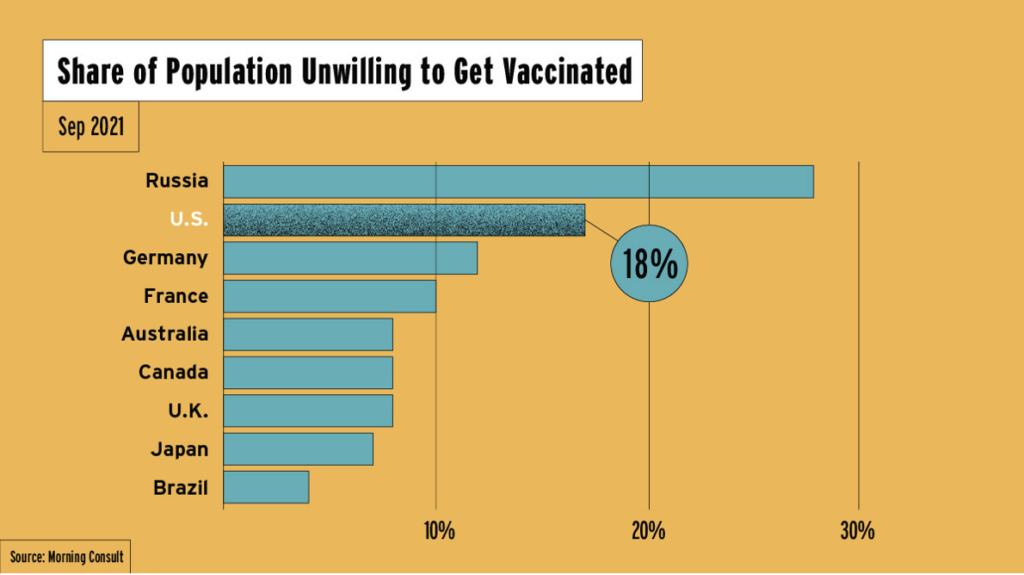
This was my favourite image in the first phase of the pandemic lockdown — in March 2020
Quote of the Day
”I much prefer Sartre’s plays to his philosophy. Existentialism works much better in the theatre than in theory.”
- A.J. Ayer
Musical alternative to the morning’s radio news
Galway Girl | Sharon Shannon, Mundy and the citizens of Galway
The biggest ever street performance of Steve Earle’s song “Galway Girl” took place on June 11th, 2016.
Long Read of the Day
The prospects for democracy surviving in the US
Transcript of an interview with Steven Levitsky, co-author (with Daniel Zitblatt) of How Democracies Die:
It opens thus:
Q:In 2018, when your book “How Democracies Die” came out, on a scale from zero to 10 — with 10 being the most dire concerns about our democracy and zero being, no, everything’s fine — where were we then in terms of your concern about our democracy?
A: I would say if 10 is most concerned, we were at five or six. We wrote the book because we were concerned. We wrote the book because we saw warning signs. But where I’m going is that I think we were too optimistic because we blamed the Republican Party for dropping the ball and allowing Donald Trump, a demagogue, an authoritarian demagogue, to be nominated. We thought they should have broken with Trump in defense of democracy. They obviously didn’t. But we believed at the time — not long ago, three years ago — that the bulk of the Republican Party was minimally committed to small-D democracy.
We believed there was a faction in the Republican Party, particularly in the Senate, that would be able and willing to draw a line that they wouldn’t let Trump cross. And we were wrong about that. The speed and the extent to which the Republican Party has been Trumpified is way beyond anything that we expected…
It’s a good interview.
Chart of the Day

When WhatsApp went down, Brazilian workers’ jobs went with it
The Facebook ‘outage’ shut down an entire economy of informal work
The day before a job, Luiza Ferreira always messages her client on WhatsApp to confirm they need her services. Ferreira is a cleaner in Rio de Janeiro, Brazil, and she cleans different households every day. If the job is confirmed, she knows she won’t be wasting money on her commute and guarantees income for that day. If the job is not confirmed, she tries to fit another client in her schedule so she doesn’t lose money for the day.
But on October 4th, that system fell apart. A configuration change in Facebook’s internal network wiped the company’s services off the internet for six hours — including WhatsApp. Cut off from Brazil’s primary mode of communication, Ferreira’s business ground to a halt.
“By the time I started using SMS instead of WhatsApp, it was too late and I couldn’t book another client for the next day instead,” Ferreira told The Verge in an interview through WhatsApp audio notes. “My client didn’t see the text message I sent her. When WhatsApp was down, it really disrupted my life.”
The outage lasted for six hours, but it cost Ferriera two whole days’ worth of earnings, since she also couldn’t schedule work for the following day. “That’s income I can’t really get back,” she says.
This is an interesting illustration of the power of network effects and why social media companies are difficult to regulate — people have come to depend on the services they provide.
My Commonplace booklet
Eh? (See here)
Bus lane camera mistakes woman’s sweater for number plate
From a BBC report
A couple were sent a fine for driving in a bus lane when a camera mistook a word on a woman’s clothing for their number plate.
Dave and Paula Knight, from Surrey, received the fine for driving in a bus lane in Bath despite not being in the city at the time.
A camera had registered the word ‘knitter’ on a pedestrian’s clothing as Mr Knight’s number plate KN19 TER.
”We thought one of our friends was stitching us up,” said Mrs Knight.
This blog is also available as a daily newsletter. If you think this might suit you better why not sign up? One email a day, Monday through Friday, delivered to your inbox at 7am UK time. And it’s free!
